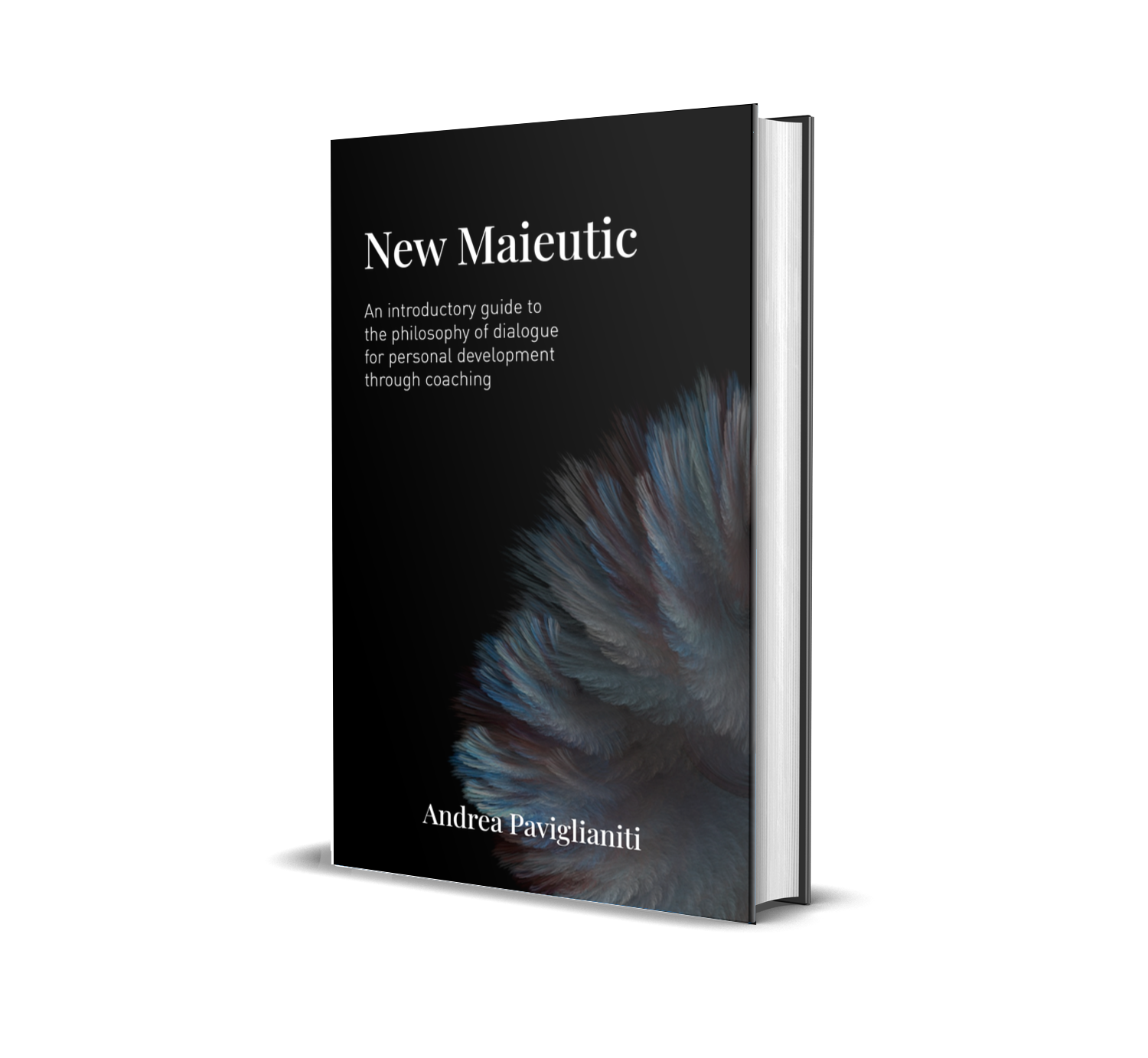What is really coaching all about?
How is it diverse from psychotherapy, mentoring and teaching?
And how can it boost learning experiences and skills development?
If any of those questions crossed your mind; or if you believe coaching is not simply an art, this can be the book for you.
- What is the purpose of coaching?
- Why classic philosophy and modern coaching methods can be congruent?
- How it can elevate any average Joe to his “super” version?
These are three main questions that I try to answer in my upcoming book:
New Maieutic
An introductory guide to the philosophy of dialogue for personal development through coaching
If you are not fond of classic philosophy, then you probably want to know what “Maieutic” stands for. This is a word that the philosopher Socrates used to describe his method of inquiry, and can be interpreted as
“The art to give birth to a soul”.
It is said that Socrates’ mother was a midwife (in Greek: maia), an obstetrician; and that her doings in facilitating childbirths were an inspiration. It became the metaphor of the process of critical thinking and pursuit of knowledge for which the philosopher is known: one that challenges our assumptions, making our thinking more consistent.
Many elements of this method are incorporated in coaching and can become a powerful mindset. If you are having a conversation with someone, or with yourself, you can use coaching skills to provoke transformative learning. That is, in other words, constructive personal growth and life improvement.
In this book, I consider how coaching, critical thinking, and learning experiences intertwine and make us better people. How we can be better in reasoning and reflecting, to enhance our learning moments.
New Maieutic will address the following points:
- Good coaches follow themselves an ethic of self-improvement
- There is no end to learning, but learning has not an end in itself
- Past literature can set up interesting formats for our modern times
- Emotions can be used mindfully to connect with our interlocutors
- Daoism, Neurosciences contribute to coaching, in a way
- A mature application of the “nosce te ipsum” principle
- The value of observation, imagination, memory, critical thinking, and iterative thoughts
- Debunking the self-help approach and introducing a different state of mind
- Fractal geometry, learning and neural network have more in common than you think
Purchase your copy of New Maieutic
Paperback
Select your closest vendor:
